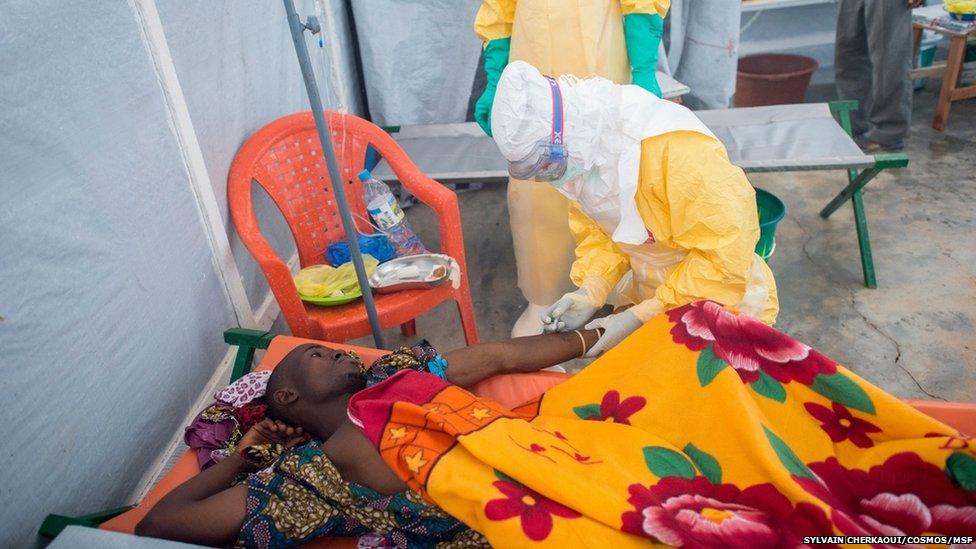Ebola airport screening: Will it work?
- Published
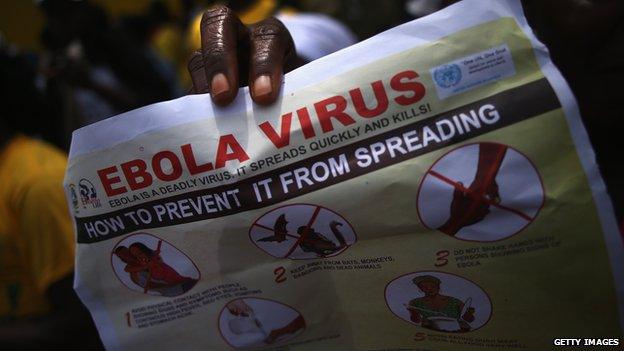
The UK is to begin screening some passengers who have travelled from Sierra Leone, Liberia and Guinea for signs of Ebola virus disease.
Downing Street says passengers arriving at Gatwick, Heathrow and on Eurostar will be asked a series of questions and have their temperature taken.
The UK had earlier announced the move was unnecessary, although the United States said it would screen travellers in five major airports.
But British officials now say screening will offer an additional level of protection to the UK.


The UK will screen travellers arriving from Sierra Leone, Guinea and Liberia
What is screening?
Screening will involve taking people's temperatures to check whether they have a fever. This is one of the main symptoms of Ebola, but is also a symptom of many other infections.
As people go through screening they will also be asked questions to assess their risk including:
Where did you start this journey?
Have you been near anyone with confirmed Ebola virus disease ?
Have you cared for or anyone with a severe illness, or who has died of an unknown cause?
Did you visit any traditional healers while in the affected country?
Have you been vomiting or do you feel generally unwell?
Have you had any contact with dead bodies or been to any funerals?
Travellers will also be given advice on who to call and what to do if they become unwell at a later stage.

What tests are already in place?
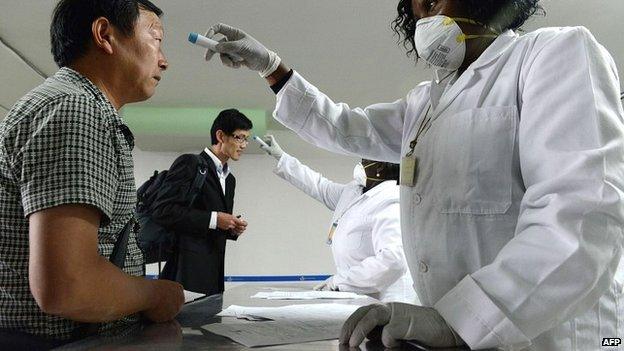
Health officials say the risk of transmission of Ebola during air travel is low
The WHO already recommends that people are screened as they exit Ebola-hit countries.
Travellers leaving the three worst affected countries - Guinea, Sierra Leone and Liberia - have their temperatures taken and are asked a series of questions to uncover their risk of having the infection.

Is there a quick blood test to tell who has the virus?
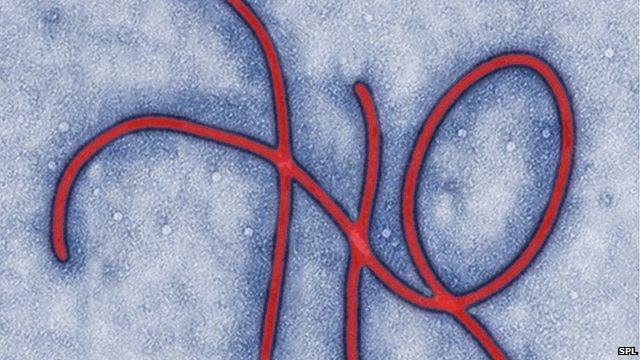
Ebola is spread through close contact with virus-containing blood, vomit and faeces
Blood tests can help identify the virus, but they need to be analysed in laboratories and it can take hours to get a result.
Airports do not currently have this capacity.
Also, some people who later go on to develop the infection will not be picked up as the incubation period - the time from exposure to the virus to a person showing symptoms - can vary from two to 21 days.

Will screening in Britain actually work?
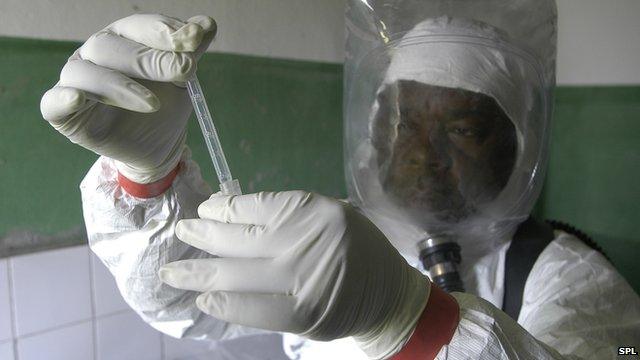
Researchers are working on vaccine trials in the UK and US
Some health experts argue that by screening on exit, anyone who is likely to be infectious will be identified and not allowed to fly.
They say it is extremely unlikely that many people would develop symptoms during a flight, so additional screening on entry would not pick up many cases.

How easy is it to catch Ebola on a plane?

There have been no cases of transmission on flights during this outbreak
Ebola can be spread only through close contact with the bodily fluids of someone who has symptoms of the disease.
During this outbreak there has been no evidence to suggest that anyone has picked up the virus on a plane.
Even if someone does develop symptoms, in order for fellow passengers to catch the disease, they would have to be in contact with the passenger's bodily fluids.
Vomit, blood and faeces harbour the most viral particles. So the risks remain extremely low, unless you are administering care for someone who is sick on the plane.

Would screening tests have picked up cases in the US or Europe so far?

Thomas Eric Duncan passed away on 8 October
Even if screening had already been in place in the US, Thomas Eric Duncan, the first man to be diagnosed in the current outbreak, would not have been picked up.
He only developed symptoms a week after he was back on US soil.
The first case diagnosed in Europe in this outbreak, of the Spanish nurse who was caring for patients from Liberia, would not have been picked up by airport screening either as the healthcare worker was already in the country when she got the disease.
- Published7 October 2014
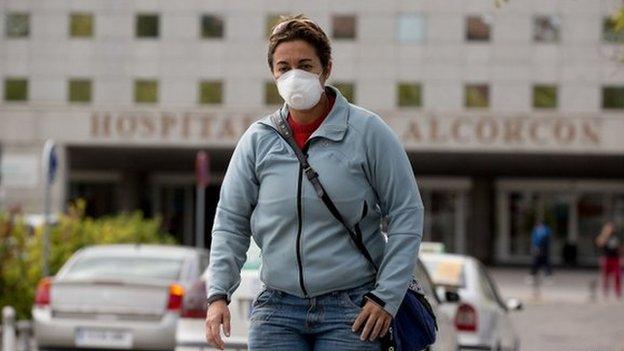
- Published7 October 2014
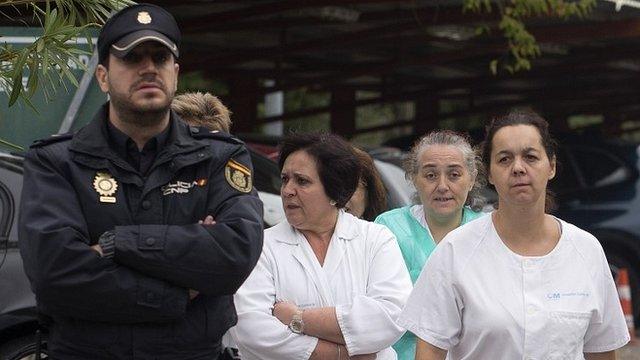
- Published14 January 2016
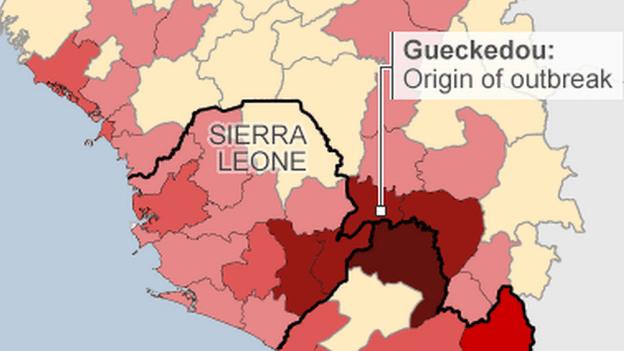
- Published22 September 2014

- Published13 November 2014
